On February 19, 2022, thirty-eight faculty and students from College of Pharmacy Gulf Medical University and California Northstate, College of Pharmacy participated in panel discussions and presentations under the theme “The Science of Learning and The Role of The Teacher in Effective Learning “. This is a part of “ GMU-CNU Introduction to Teaching & Learning” A Students’ Certificate Program “. The program is designed to introduce the essential pedagogical aspects of teaching and learning to pharmacy students participating in peer learning programs and/or academic rotations in both institutions.
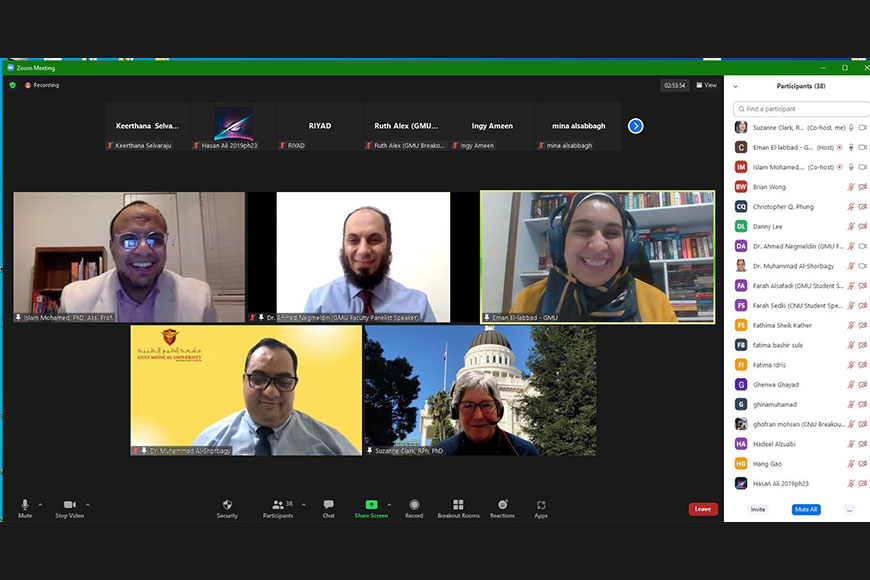
Dr. Suzanne Clark, Associate Professor of Pharmacology, and co-director of Center for Teaching and Learning, College of Pharmacy, California Northstate University introduced the concepts of the science of memory and learning. She also shared with attendee tips using “Testing Effect & Retrieval Memory Tools” to enhance durable learning.
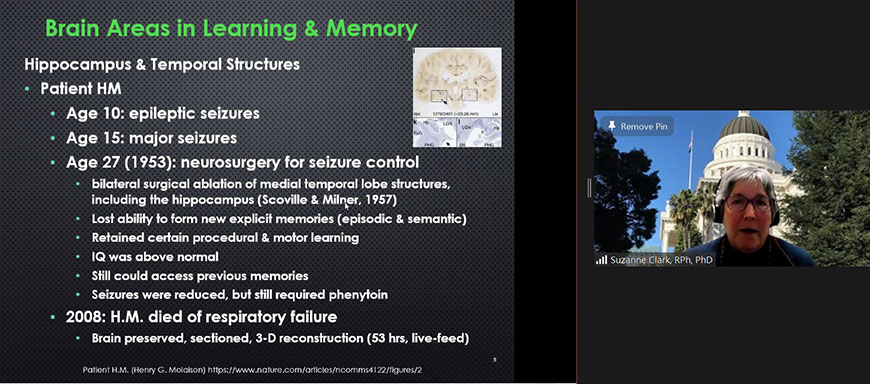
This was followed by group presentations from GMU & CNU Students sharing tips on different “Study Skills” and “ learning Approaches “ they use during their learning and tutoring session. – Ms. Fatima Bashir, 4th year PharmD student at GMU shared with the attendee how she applies: storytelling, memory palace, and active reactive.
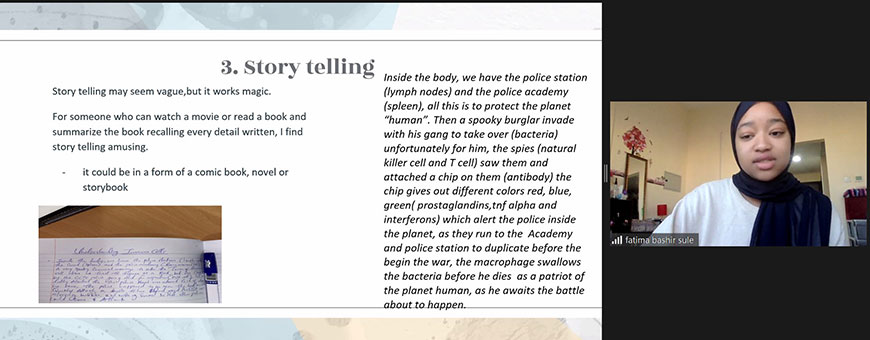
Ms. Ingy Mohamed Yehia, 2nd year PharmD student at GMU shared her preferred learning tips such as using color-coordinated notes and flashcards.
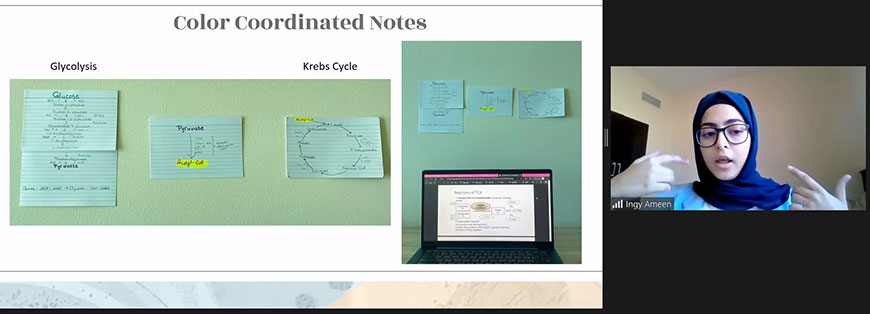
Ms. Farah Alsafadi, 2nd year PharmD student at GMU shared with the participants some of her learning tips to enhance retrieval memory and recall such as “studying out loud and using color-coordinated flow charts”
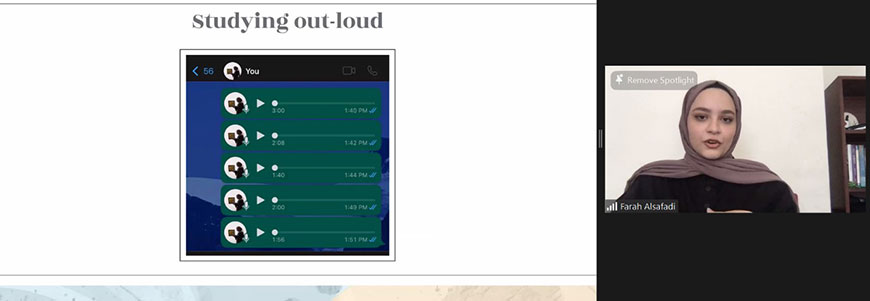
Ms. Ngoc Nguyen, a 3rd year PharmD student at CNU, shared her strategies to approach pharmaceutical calculations and preparation for exams.
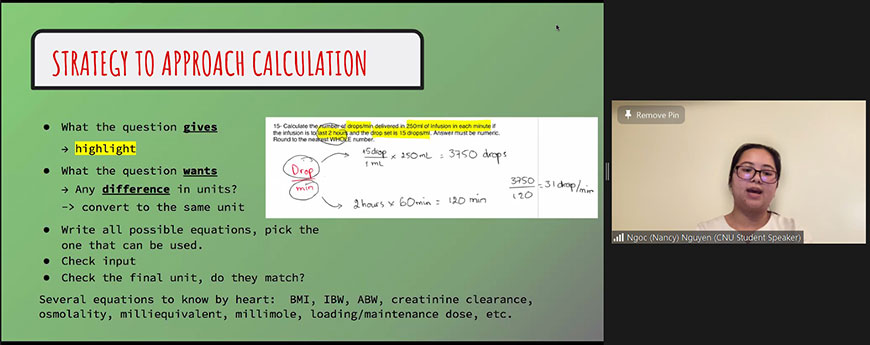
Ms. Farah Sedki, 3rd year PharmD student at CNU, shared some tips on studying before and after the classes and exams and how she applies for mnemonics and flashcards in learning and tutoring. She also condenses and organizes the material to create her own study guides and writes quiz questions.
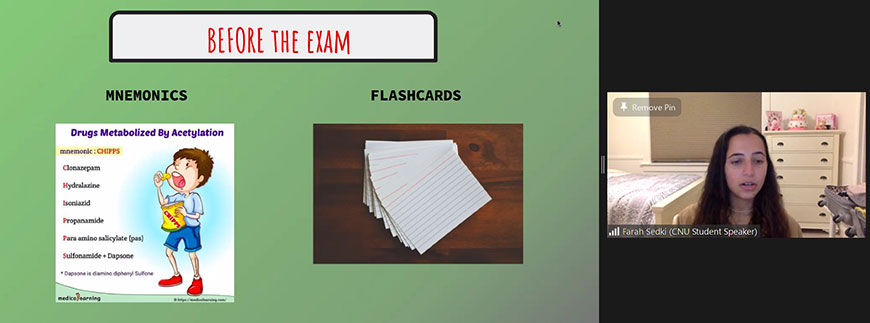
While Ms. Xinge Zheng, 2nd year PharmD student at CNU shared how she prepares for Team-based learning, applies spaced repetitions and flow charts in her learning.

This was followed by an active discussion between all attendees in breakout rooms reflecting on their study skills approaches and their interest in applying new skills. The break out room was moderated by Ms. Helen Mdalal Alnabwani – 3rd year PharmD student at CNU, Ms. Ghofran Mohsen 1st year PharmD student at CNU, Ms. Ruth Alex, Ms. Judit Don, and Mr. Victor Olaitan 4rd year PharmD student at GMU.
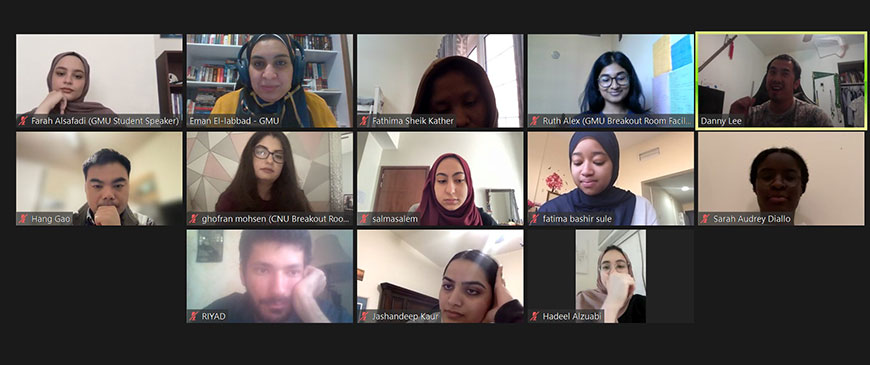
Dr. Muhammad Al-Shorbagy, Associate Professor of Pharmacology and Toxicology, Gulf Medical University discussed “ The Role of Teacher and Principles of Effective Learning ”
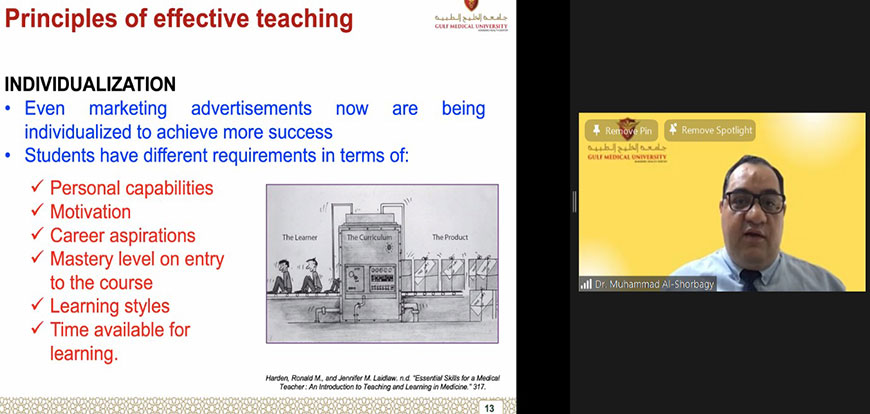
Finally, Dr. Islam Mohamed, Interim Assistant Dean of Academic Affairs, Assistant Professor of Pharmacology, College of Pharmacy, California Northstate University and Dr. Ahmed Thabet, Ph.D., Assistant Professor of Medicinal Chemistry, College of Pharmacy, Gulf Medical University engaged in a panel discussion on “Integrating foundational Sciences Concepts with Clinical Practice. “ The panel discussion was moderated by Dr. Eman El-Labbad, Assistant Professor of Medicinal Chemistry, Pharmaceutical Sciences Department, College of Pharmacy at Gulf Medical University.
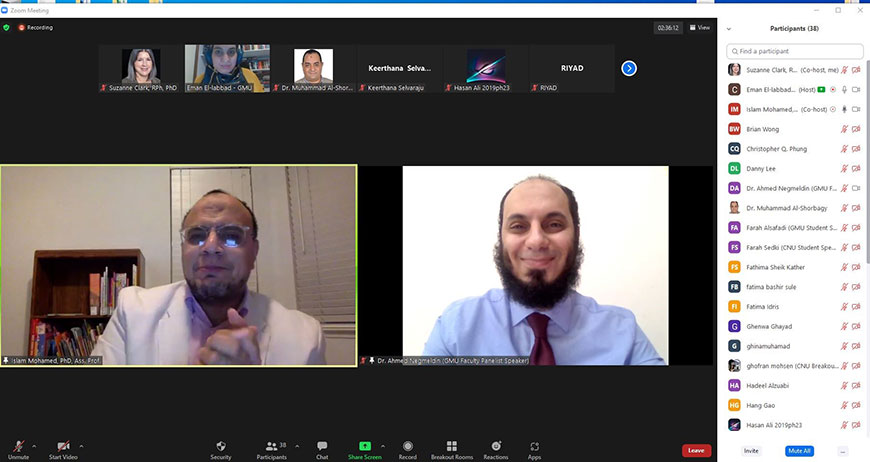
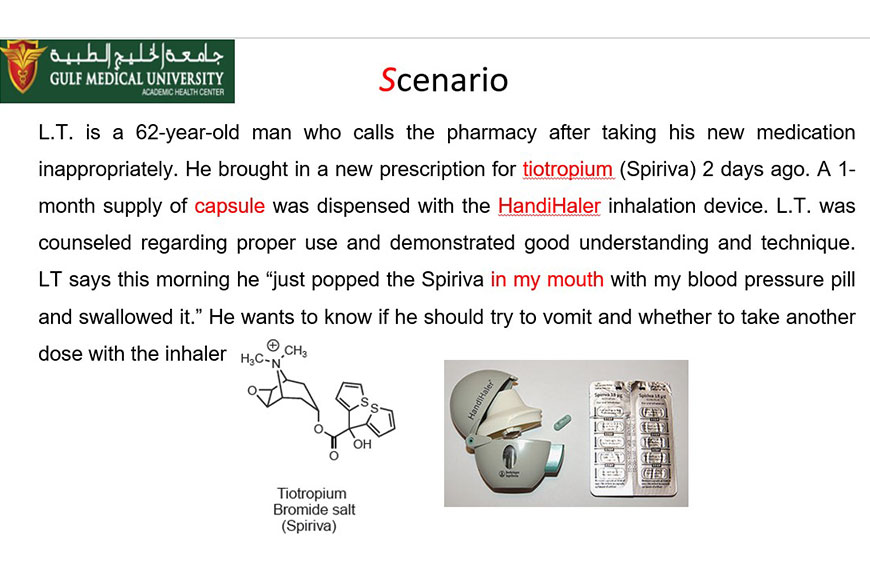
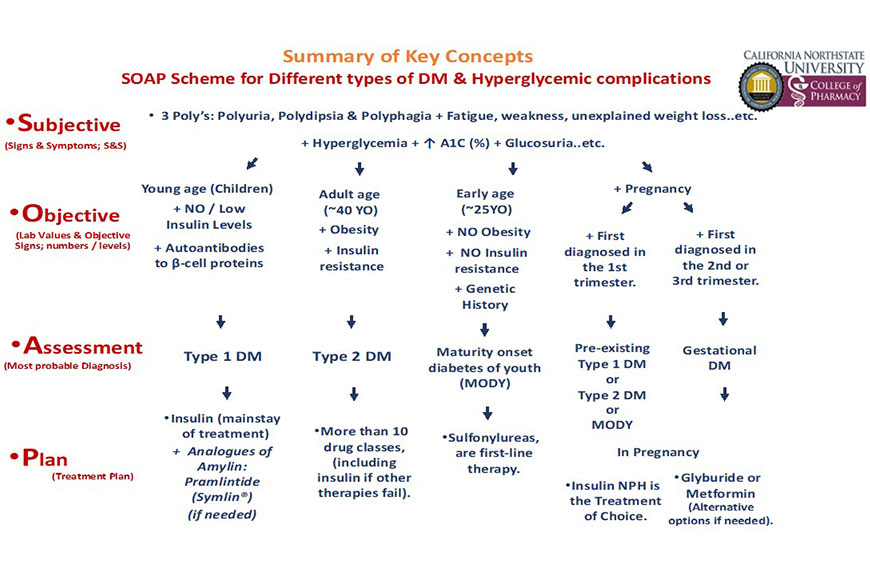
In summary, a wide range of study skills and teaching methods were discussed, as well as ways to adapt these methods to tutoring and academic assistance sessions. Of note, all student presenters demonstrated how they use methods that take advantage of the science of learning and memory: instead of passively re-reading the book or watching videos, they illustrated active engagement with the material, through creating stories, memory palaces, sticky notes, flash cards, flow charts, color-coding, study guides, or writing quiz questions to share with their classmates. During the breakout room sessions, students discussed new methods they plan to adapt to their own studying, as well as apply to future work as tutors, teaching assistants, supplemental instruction leaders. These presentations set the stage for the third and final session, focused on advanced tools and clinical topics.
Dr. Muhammad Al-Shorbagy commented “ “Being an active participant in the delivery of such a program is not only enriching to the students enrolled but it brings us – the teachers- closer to what we do to revisit, understand new dimensions, and finally to polish it more.”

